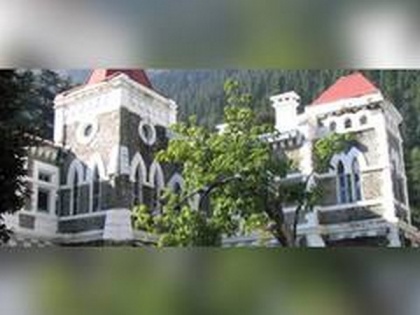Uttarakhand HC dismisses two pleas against Char Dham Devasthanam Management Act
By ANI | Published: July 21, 2020 04:10 PM2020-07-21T16:10:12+5:302020-07-21T17:15:02+5:30
The Uttarakhand High Court on Tuesday dismissed two pleas, one of which was filed by BJP leader Subramanian Swamy, challenging the validity of the Uttarakhand Char Dham Devasthanam Management Act, 2019.

Uttarakhand HC dismisses two pleas against Char Dham Devasthanam Management Act
The Uttarakhand High Court on Tuesday dismissed two pleas, one of which was filed by BJP leader Subraman Swamy, challenging the validity of the Uttarakhand Char Dham Devasthanam Management Act, 2019.
A division bench of Chief Justice Ramesh Ranganathan and Justice RC Khulbe ruled that the ownership of the temple properties would vest in Char Dham shrines. It also held that the power of the board would be confined to the administration and management of the properties.
"Except to the limited extent that the words 'shall devolve' in Section 22 must be read as 'devolve on the Char Dham and shall be maintained by the Board', and the words 'may further acquire land', in the proviso thereto, shall be read as 'may further acquire land on behalf of the Char Dham', the challenge to the validity of the 2019 Act, on the ground that it violates Articles 14, 25, 26 and 31-A of the Constitution of India, must fail," the bench said in its order.
With these observations, the High Court dismissed both the writ petitions, one filed by Subraman Swamy and the other by Sri Five Mandir Samiti Gangotri Dham.
During the hearing, Swamy submitted that the 2019 Act is blatantly unconstitutional, it is palpably flawed and suffers from grave legal infirmities.
He also sought to draw a distinction between the Somnath, Shirdi Sai Baba and Vaishno Devi temples on the one hand, and the temples brought within the ambit of the 2019 Act on the other, contending that, while the former are individual temples, the latter covers a large number of temples.
It was contended on behalf of the respondents that under Section 4(2) of the 2019 Act all the properties of the temple vest in the temple itself and the ownership rights have not been divested from it or vested in the board.
"Section 22 merely confers a right on the board regarding matters which were hitherto being exercised by the State Government, local bodies and others," the respondents had submitted.
The two pleas had challenged the constitutional validity of the Uttarakhand Char Dham Devasthanam Management Act, 2019, which allows the state government to take over the management of the Char Dhams and 51 other temples in the hill state.
( With inputs from ANI )
Open in app